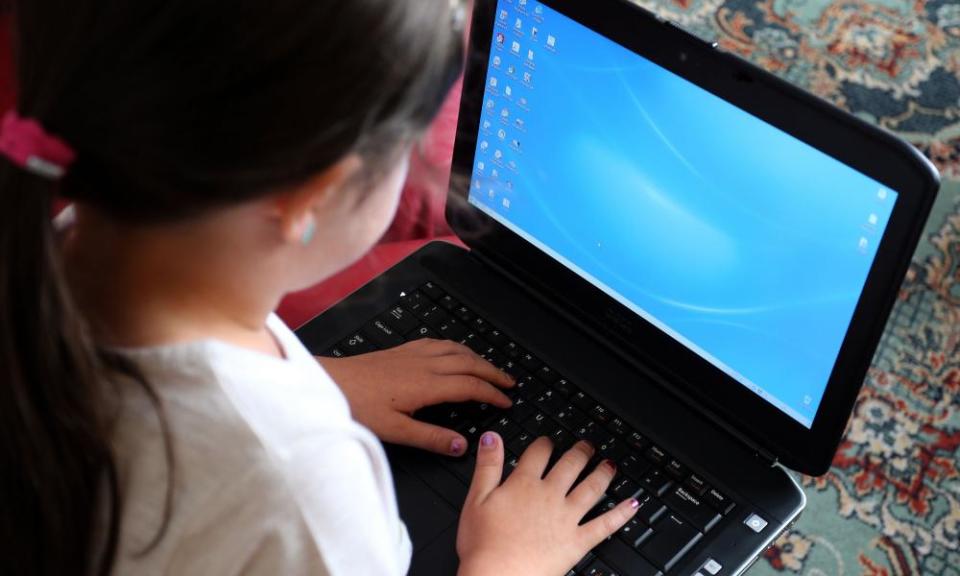How to help your children make the most of their screen time

With children and teenagers spending hours on screens each day, how do parents help them reap the benefits and stay healthy? Child development experts share their tips.
Provide scaffolding
Primary school-aged children may need help bridging the gap between what they view on screen and applying it in the real world. Parents should give them the space to get on with their school work, but regularly check in on them to ensure they understand what they are doing, as well as asking them about what they have learned afterwards, says Rachel Barr, a professor of developmental psychology at Georgetown University in Washington DC.
Vary content to reinforce learning
Children can learn a lot from educational videos, but they will learn more if they build on those lessons using other types of content. For example, a young child might watch a CBeebies programme about spring and plants growing, then talk to their parents about it, and then play an app involving the same TV character watering a seed, or even plant a seed in real life. “This variety of activities helps her to connect the information to her real life and to build on that information,” Barr said.
For an older child, they might have a favourite TV show and then decide to write their own story and discuss it with a friend online via text or video chat. “Media is a tool that can be used in multiple forms to learn about things that interest a child,” Barr said. “They may need support from others around them, but variety maximises the possibility that children will transfer the information from the media and integrate it into their everyday experience.”
Set boundaries
Screen time can be harmful if it displaces an healthy activity you need for healthy development, such as sleep, a good diet, and regular outdoor exercise. “Parents need to set boundaries at an early age, and the earlier the better, in terms of screen time and social media use, so it does not displace activities to stay healthy like, such as sleep,” said Bernadka Dubicka of the Royal College of Psychiatrists. “One of the other things I recommend is that parents are not too dictatorial around this, as the more you say no the more likely kids will go and do it. Having an open dialogue is important.”
Talk to your child about setting tech-free times and zones, such as no devices at the dinner table or in the hour before bed. Also, be a good role model yourself – switch off noisy alerts and avoid constantly checking emails or social media updates.
Get tech savvy
Websites can be blocked, content filtered and time limits set on devices. Get familiar with the various parental controls that are built into your devices’ operating systems. You can also adjust settings on video streaming sites such as YouTube and Netflix to prevent the next clip automatically playing, or children seeing inappropriate content. “Being able to turn off those automatic controls actually helps the child when you say okay, time to go outside for a minute, or go and read a book or play a puzzle,” Barr said. Common Sense Media has guidance on how to do this.
Not all screens are created equal
Screen time does not have to be passive: children can make video clips, music, podcasts, or learn to code. It can also provide valuable opportunities for to children to stay in touch with friends, or even collaborate on projects, from baking cakes to writing a novel.
Go to Common Sense Media for more tips.

 Yahoo Finance
Yahoo Finance 